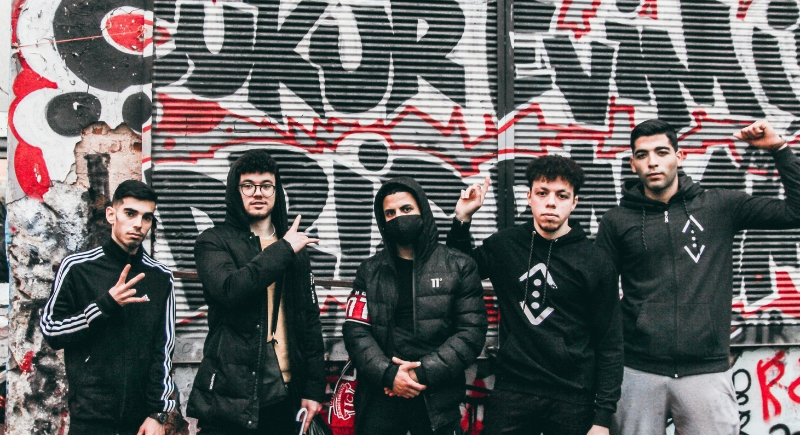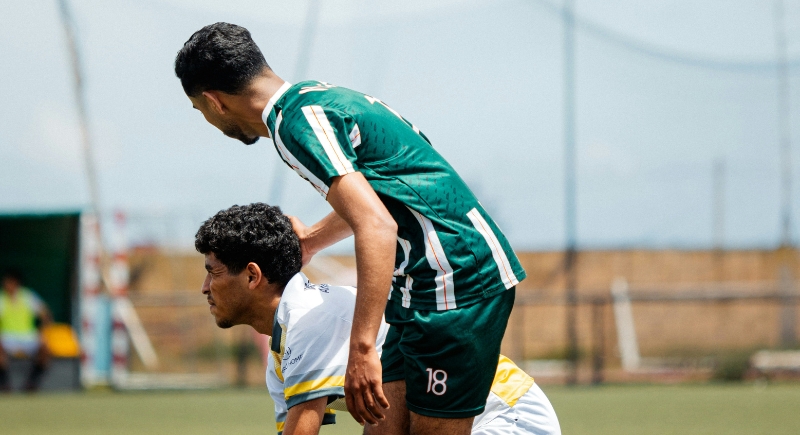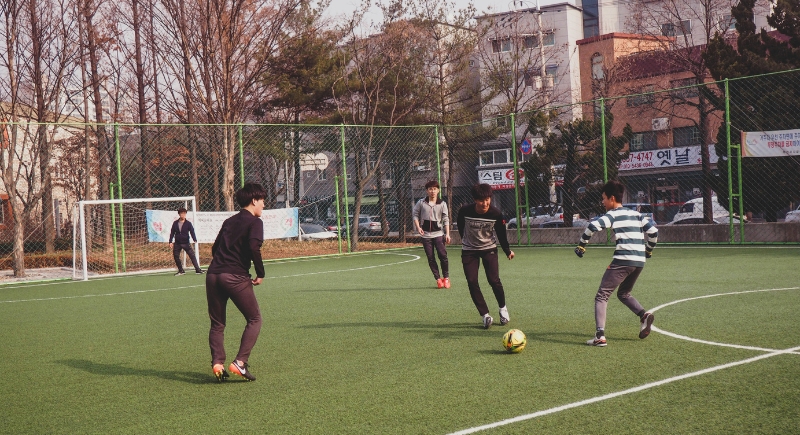How Sweden Hopes Soccer Can Help Reduce Gang Violence
Every Saturday night in Gottsunda, a suburb just outside Uppsala, you’ll see the soccer field lit up. Teenagers fill the place, arguing about teams and chasing after the ball. There’s a real energy in the air, even with the apartment buildings and tough corners nearby.
A local pastor named Robert Wirehag, who used to play for IK Sirius, organizes these games, calling them “night football.” He keeps coming back because he knows it gives these kids something better to do than hang around where gangs might try to recruit them. Uppsala isn’t the quiet city it used to be; lately, there have been more shootings and explosions. Many of the teens playing here are at risk, some are already tangled up with gangs, and others are trying to figure out which path to take.
Rising Gang Violence and the Fight for Youth

Image via Unsplash/Ibrahim guetar
Violence has spread across Sweden in a way that shocks many who grew up with its reputation for calm and safety. Police have tracked an alarming rise in bombings and gun crimes. Official data from 2024 estimates that over 62,000 people in the country have connections to criminal networks. Worse, gangs are recruiting younger people.
Authorities have reported cases of children under fifteen carrying out serious offenses. In neighborhoods where long-term unemployment lingers and schools struggle, the pull of quick cash from crime is strong. Programs like night football aim to interrupt that pattern at the point of temptation.
The games run late into the evening, the time when many teenagers would be roaming. It sounds like a small thing, but stepping onto that pitch means stepping into a safe zone where the rules are different and trust begins to build.
Why Soccer Works in These Spaces

Image via Unsplash/Salah Regouane
Sweden’s struggle isn’t unique. In Rio de Janeiro, Brazil, researchers have seen sports give at-risk youth a sense of belonging, something that gangs exploit. They often lure kids with promises of protection and status. Soccer flips that script by offering a real network with coaches, teammates, and mentors.
Playing on a team means learning to focus and manage stress without violence. Those lessons translate far beyond a field. The United Nations Office on Drugs and Crime has highlighted sport as an environment to teach life skills that push back against crime. When a teenager sees a teammate graduate or get scouted by a club, it shows them that another road is open.
Across Southeast Asia, similar projects have reported success. A foundation in Vietnam works with street children through football by pairing play with guidance and education. In the Philippines, football sessions weave in conversations about online exploitation and gang pressures. These examples line up with what Swedish leaders hope to achieve. Studies from Loughborough University show young players care more about how safe they feel and whether they build real connections. That mindset is shaping Sweden’s approach.
The Stakes Behind the Statistics
Earlier this year, Sweden’s Prime Minister addressed the country after a surge in killings. His words reflected a grim reality that no other nation in Europe is seeing violence on this scale. Cities like Stockholm, Gothenburg, and Malmö have gun-related deaths per capita that outpace major cities elsewhere. Uppsala, where Wirehag organizes his games, has seen youth matches canceled because visiting teams feared the local tension.
Police records list more than one explosion a day at the start of this year. When officers do arrest suspects, many are minors. Some cannot be prosecuted because they are too young under Swedish law. The loophole now fuels debates over reform. Lowering the age of responsibility is under discussion, but community leaders argue prevention needs just as much focus.
Soccer’s Potential Beyond Sweden
International programs show that soccer isn’t a magic solution, but it does create opportunities. In Thailand, martial arts clubs invite young offenders to train, learn structure, and gain a sense of direction. In Laos and Cambodia, rugby sessions combine sport with lessons on decision-making. These efforts give young people something to hold on to besides crime. Sweden’s version is still growing.
The night football project now takes place at Valsätra Sports Ground, slightly removed from the heart of Gottsunda, after safety concerns pushed the move. Wirehag says it made a difference. Rival gang members avoid stepping out of their zones, which means fewer interruptions.
In the long run, the hope is to see programs like this expand to more cities. Uppsala’s initiative is part of a larger effort called Football Without Borders. It takes kids to professional matches and lets them meet national-level players. Joakim Persson from Sweden’s U21 team has spoken to them about persistence and finding purpose in the sport. It means a lot to have living proof that someone who grew up in a challenging environment can carve out a future that doesn’t end in a mugshot.
The Broader Picture

Image via Unsplash/Hc Digital
Gang violence in Sweden has roots in long-standing issues. Inequality has widened, and neighborhoods with limited opportunities have become fertile ground for criminal networks. Programs built around sport are not a quick fix, but they create places where young people can reset their expectations. They are surrounded by teammates instead of gang recruiters. They are given responsibility in a setting that values them. And they experience victories, losses, and lessons that have nothing to do with crime.